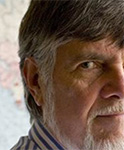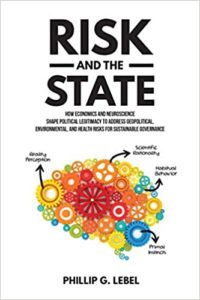RISK AND THE STATE by Phil LeBel (Ethiopia)
Economics demonstrates how markets can serve as remarkably efficient institutions in allocating scarce resources.
•
 At the same time, incomplete information generates prices that can lead to a misallocation, producing in some cases too little while in others too much of a good. Matters become more complicated when striking a balance is influenced by our perceptions of risk. Here, neuroscience provides insights into which, and what kind of public sector interventions one should consider. While there are many types of risk – political, economic, financial, and environmental as individuals confront any crisis, our perceptions of risk can alter significantly the extent to which we look to public sector intervention as a response. In the short run, crises may be managed through greater public intervention while in the long run, economic fundamentals still drive key decisions, and thus the extent to which a given mix meets a test of political legitimacy.
At the same time, incomplete information generates prices that can lead to a misallocation, producing in some cases too little while in others too much of a good. Matters become more complicated when striking a balance is influenced by our perceptions of risk. Here, neuroscience provides insights into which, and what kind of public sector interventions one should consider. While there are many types of risk – political, economic, financial, and environmental as individuals confront any crisis, our perceptions of risk can alter significantly the extent to which we look to public sector intervention as a response. In the short run, crises may be managed through greater public intervention while in the long run, economic fundamentals still drive key decisions, and thus the extent to which a given mix meets a test of political legitimacy.
At a time of deepening partisan political divisions, the respective roles of the private and public sectors are once again in flux. These changing roles shape our notions of political legitimacy, especially in the presence of risk. Neuroscience provides critical insights on how we perceive risk, and in turn, make decisions. In this well researched book, economist Phillip LeBel explores the various roles of states and markets, with a focus on how we respond to key issues in managing public health and the environment.
In looking at the natural environment and public health, while perceptions of risk may shape short-term responses, the challenge we face over the long term is to craft incentives that promote sustainability and improved health of a society. Basic science always should guide public policy, even in the presence of risk. Reforming public sector institutions for greater transparency and accountability are important key steps in the respective roles of states and markets, for which some suggested changes are put forth here. In the end, personal and social identity depend critically on how we manage information to craft a sustainable, inclusive, and economically viable future.
The January 6, 2021 Capitol insurrection in Washington, D.C. reminds us of the need to establish a common understanding of scientific evidence and how this shapes our views of democratic governance. This book comes at a time when such an analysis is needed now more than ever.
•
Risk and the State: How Economics and Neuroscience Shape Political Legitimacy to Address Geopolitical, Environmental, and Health Risks for Sustainable
by Phillip G. LeBel (Ethiopia 1965-67)
Brown Walker Press
340 pages
April 2021
$34.95 (Paperback)

No comments yet.
Add your comment